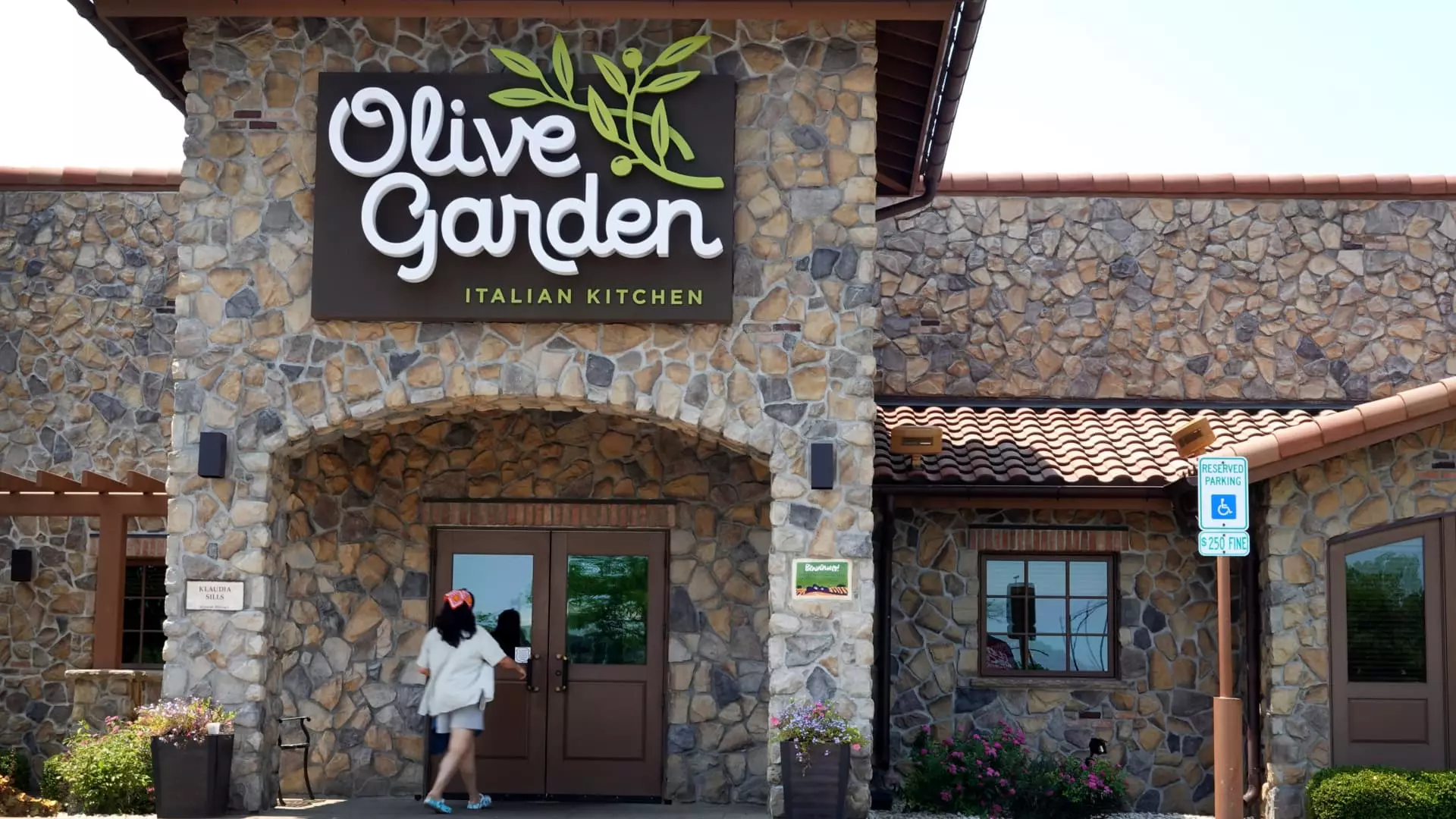Darden Restaurants, a leading player in the casual dining sector, has recently reported its quarterly earnings, highlighting a challenging period characterized by weaker-than-anticipated financial results. The company’s revenue and earnings per share for the first quarter did not meet the expectations of analysts, as outlined in a recent report. Darden’s results underscore a notable decrease in sales, particularly from its flagship chain, Olive Garden, and several fine dining establishments. The reported earnings per share stood at $1.75, lower than the anticipated $1.83, while revenues reached $2.76 billion, falling short of the $2.8 billion forecasted by Wall Street.
Despite these disappointing figures, CEO Rick Cardenas expressed a poised optimism regarding the company’s resilience and long-term strategies. He acknowledged the challenges faced in adjusting to consumer needs without sacrificing the integrity of Darden’s organizational objectives. Cardenas maintained that the initiatives being implemented by the brand teams are crucial in navigating through this economic downturn while focusing on the long-term vitality of the business. The stock market reacted positively to this reassurance, with shares rising approximately 10% in premarket trading, indicating investor confidence in the company’s strategic vision despite faltering short-term performance.
Darden’s financial landscape reveals a concerning trend in customer traffic across its restaurant chains, particularly in July, when a significant decline was noted. Although there were signs of improvement later in the quarter, the damage seemed to have been done, leading to an overall decline in same-store sales by 1.1%. Notably, Olive Garden struggled with a 2.9% drop in same-store sales. In response to these declining numbers, the chain plans to revive its popular Never Ending Pasta Bowl promotion in hopes of luring back patrons.
On the other end of the spectrum, LongHorn Steakhouse emerged as a bright spot in Darden’s portfolio, recording same-store sales growth of 3.7%—a remarkable performance considering the broader industry challenges. Meanwhile, the fine dining segment, represented by establishments like Eddie V’s and The Capital Grille, reported significant declines, with same-store sales dropping by 6%. This divergence in performance across segments highlights an uneven recovery in consumer dining habits as the market continues to evolve post-pandemic.
Looking ahead, Darden Restaurants remains steadfast in its financial outlook for the fiscal year. The company has reaffirmed its forecast for earnings per share in the range of $9.40 to $9.60, alongside projected net sales between $11.8 billion and $11.9 billion. This bold projection amidst a challenging first quarter reflects Darden’s strategic commitment to long-term growth and adaptability. As the company endeavors to implement comprehensive changes across its brands, it will be crucial for management to monitor consumer trends closely to recalibrate strategies that will foster recovery and sustain growth in the competitive dining landscape.
While Darden Restaurants has faced significant hurdles in its latest financial report, the leadership team’s response and the potential turnaround strategies may indicate a future path toward stabilization and growth.


Leave a Reply